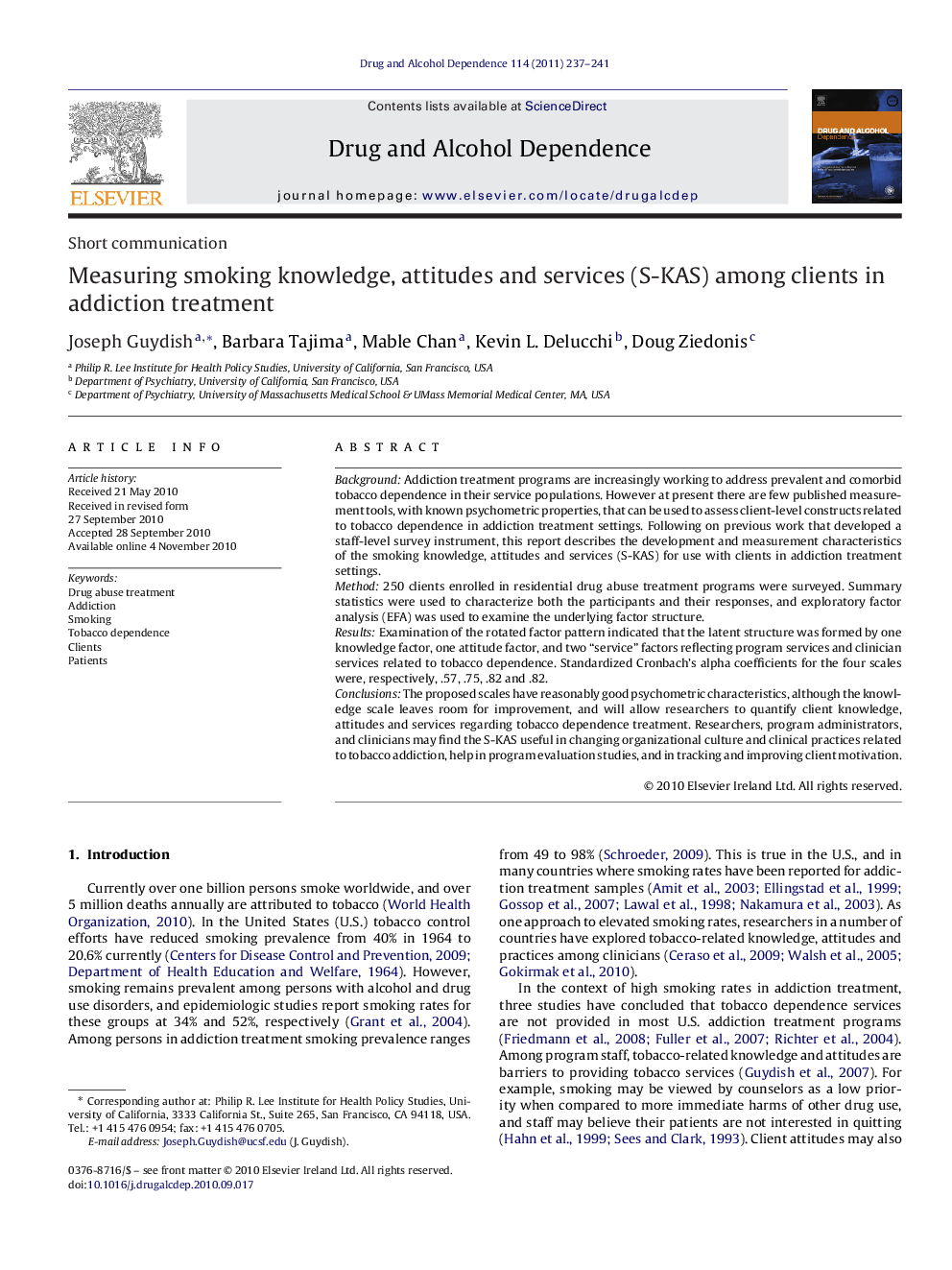| Article ID | Journal | Published Year | Pages | File Type |
|---|---|---|---|---|
| 1070355 | Drug and Alcohol Dependence | 2011 | 5 Pages |
BackgroundAddiction treatment programs are increasingly working to address prevalent and comorbid tobacco dependence in their service populations. However at present there are few published measurement tools, with known psychometric properties, that can be used to assess client-level constructs related to tobacco dependence in addiction treatment settings. Following on previous work that developed a staff-level survey instrument, this report describes the development and measurement characteristics of the smoking knowledge, attitudes and services (S-KAS) for use with clients in addiction treatment settings.Method250 clients enrolled in residential drug abuse treatment programs were surveyed. Summary statistics were used to characterize both the participants and their responses, and exploratory factor analysis (EFA) was used to examine the underlying factor structure.ResultsExamination of the rotated factor pattern indicated that the latent structure was formed by one knowledge factor, one attitude factor, and two “service” factors reflecting program services and clinician services related to tobacco dependence. Standardized Cronbach's alpha coefficients for the four scales were, respectively, .57, .75, .82 and .82.ConclusionsThe proposed scales have reasonably good psychometric characteristics, although the knowledge scale leaves room for improvement, and will allow researchers to quantify client knowledge, attitudes and services regarding tobacco dependence treatment. Researchers, program administrators, and clinicians may find the S-KAS useful in changing organizational culture and clinical practices related to tobacco addiction, help in program evaluation studies, and in tracking and improving client motivation.
